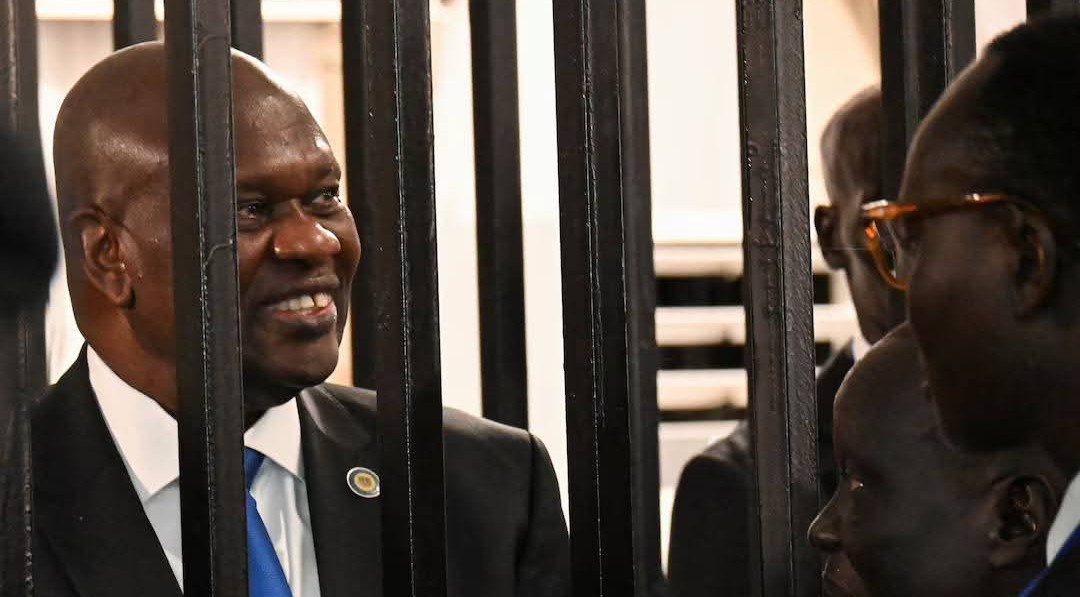
The trial of South Sudan’s suspended First Vice President Riek Machar opened under tight security in Juba on Monday, as the United Nations called for the proceedings to meet international standards of justice and transparency.
The U.N., through its spokesperson Stéphane Dujarric in New York, confirmed that the peacekeeping mission (UNMISS) was closely monitoring developments at the special court.
“Our mission reminds all concerned that the judicial process must adhere to international standards of fairness and transparency, with full respect for the rule of law and human rights,” Dujarric told reporters.
The case, which has gripped the nation, pits one of South Sudan’s most powerful political figures against the state he helped shape. Machar, a central actor in the country’s fragile coalition government, now faces charges of treason, murder, and crimes against humanity — accusations his party, SPLM-IO, categorically rejects.
As the trial opened, Machar’s defense team launched a direct challenge to the court’s legitimacy. Geri Raimondo Legge, his lead counsel, argued that the proceedings were “unconstitutional and unlawful,” citing Machar’s immunity as a sitting First Vice President under the 2018 peace agreement.
“Dr. Machar remains a vice president, and that office carries legal protections. The charges before this court violate not just national law but also the political settlement that brought South Sudan back from civil war,” Legge declared, drawing murmurs from the packed courtroom.
On the other side, state prosecutor Ajo Ony’Ohisa Igele dismissed the defense’s arguments as “weak,” insisting the charges would be proven through testimony and evidence linking Machar and his allies to violent attacks by the White Army militia in Nasir County earlier this year.
Seven of Machar’s close associates — including the petroleum minister and the deputy army chief — stand accused alongside him, deepening the trial’s political stakes.
The proceedings unfold against a backdrop of a fragile peace. Machar and President Salva Kiir lead a tenuous coalition forged under the 2018 accord that ended years of civil war.
UN warn that the trial could strain the deal, testing whether South Sudan’s institutions can balance justice with stability.
The courtroom drama also coincides with renewed clashes in Nasir County, Upper Nile State, where UNMISS is verifying reports of fresh fighting between government forces and White Army elements. Dujarric said casualties had been reported, reiterating international calls for restraint.
For many South Sudanese, the trial feels like history repeating itself: the same leaders who signed peace now face off in court, with the nation’s future hanging in the balance.
Civil society groups have voiced fears of selective justice, while others say accountability is long overdue.
As proceedings continue, the world’s eyes remain fixed on Juba. The question is no longer only about Machar’s guilt or innocence — but whether South Sudan’s judiciary can rise to the moment, delivering justice that heals rather than divides.

